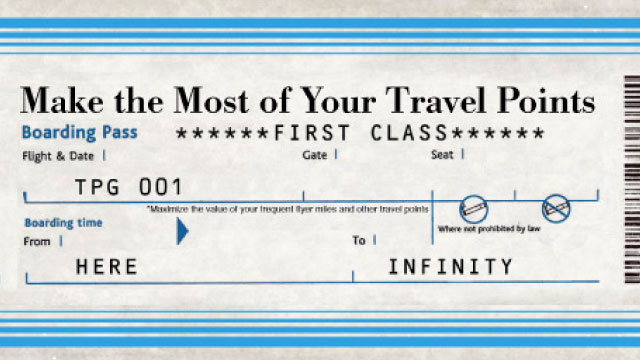Reward points: the fine print fooled us again
It’s common sense served with a side of laziness: we know that we should read the fine print before signing on the dotted line, but who actually does this?
And can anyone actually read print that ‘fine’?
It pays to read those cumbersome afterthoughts. Because, it turns out, those points don’t technically belong to you and can be taken away at the airline’s discretion.
This can come as quite of a shock to people who relish in racking up rewards. They’re marketed as the main reason to open a new credit card, and a significant portion of the customer base will use the card solely for obtaining the points.
But as consumers dutifully rack up miles and points, at least one-third of all points and miles are never redeemed, according to a 2011 study by Colloquy. It’s almost like a partial Ponzi Scheme.
The U.S. rewards industry, based on brand-loyalty programs, was valued at $48 billion in 2011. Don’t let your rewards become buried treasure.
For those unaware, rewards can default for any of the following reasons:
The bank shuts down.
Earlier this month, a startup online banking center that provided cash-back rewards for using a debit card shut down. While the no one lost their monetary funds, the same can’t be said for the masses of reward points they accrued. PerkStreet, as it was aptly named, announced that they “just didn’t have the financial capability to pay out perks earned,” and all unclaimed rewards vanished at the moment of announcement.
Federal law provides protection for consumers in their banking transactions, but rewards are treated as an add-on and aren’t included in that provision.
Luckily, major banks like Citi, Chase or Bank of America are highly unlikely to fail, but that doesn’t exempt you from reading the fine print responsibly.
You somehow violate the terms of your cardholder agreement.
It’s fairly common to use tricks-of-the-trade to amount more rewards, but if your bank senses some funny business in your methods, it has the right to cancel your account, meaning: say bye-bye to those rewards you schemed so hard to get.
You don’t pay your bill.
This is a no-brainer. It may feel like with every swipe of the card you’re earning rewards, but keep in mind that you haven’t actually spent any money until the bill has been paid. Missing the payment period can result in revoked reward points. They may not be completely gone, but it’s likely you’ll have to pay off your debt in its entirety, plus a fee, to get them back.
Your account is inactive.
Expect an email reading something like: “We haven’t noticed any activity in (amount of time). Remember, to keep your account active, you must earn (type of) points at least once every 12 months. Otherwise, all your points will be forfeited.”
At least they were kind enough to give you a warning, right?
Also note that points and miles can expire if not used within a certain time frame.
The rewards program decides to devalue its points.
Like the inactive account notice, you’ll likely get a warning that your points will be devalued, giving you a sliver of a chance to redeem them at their current value. It’s a common practice. Cardholders still get the same amount of points per purchase, but they’re simply not worth as much.
How to avoid forfeiting your hard-earned points:
Use them or lose them! And on a regular basis! While you may find excitement in watching your rewards pile grow, they’re not a chia pet. Use them to buy something, or cash them in and stash the dough in a savings account. It may not feel as fun, but it’s better than the despair of seeing your rewards disappear altogether.

 Save up to 60% on Business Class. Call 1-800-435-8776
Save up to 60% on Business Class. Call 1-800-435-8776

Leave A Comment